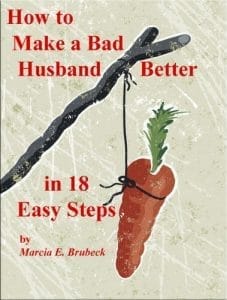
What You Must Do to Recover from Your Divorce
Divorce forces you to figure out who you are without the other person. This statement sounds obvious and simple, right? Still, if the two of you have been married for many years, perhaps raising children together, it can be anything but.
You are accustomed to allowing for the other person’s quirks and preferences. You are used to companionship. While the two of you are together, you constantly, automatically adjust. After the other person leaves, there’s no one to react or respond to.
Once the two of you split, your living quarters may feel empty, deserted. You may find yourself wandering from room to room, uncertain what to do with yourself. You’re at sea.
If you and your spouse were more or less always in conflict, don’t assume that it will immediately be easier to live alone. Unfinished business may fill your mind until you feel as if you were listening to a broken record—the same few bars over and over and over again. You didn’t feel heard. There was no closure.
If the other person filed for divorce when you wanted to continue working on the relationship, you might have felt abandoned. Avoid concluding that you are somehow deficient or defective.
Don’t see the divorce as a comment on your personal inadequacy. Your spouse isn’t God, just another human struggling to keep body and soul together.
If the divorce was your idea, don’t beat up on yourself. Don’t think of yourself as destroying the family, pitting in-laws against in-laws, or making the children suffer.
Every adult has the responsibility first and foremost to take care of him- or herself. If you don’t do this work, who else will?
You are answerable primarily to yourself, not to anyone else. You alone can decide how to live your life. You alone will be the judge of it in the end. In the meantime, your children need to see you taking good care of yourself. They watch you and learn from the example you set.
Two people can continue in a relationship only as long as both of them want to. In Shakespeare’s day, people died in their mid-thirties if not sooner. By today’s standards, marriages were brief.
In contrast, people nowadays live into their eighties and beyond. We all change as we age. Imagine that you and your spouse were companions on the journey until you reached a fork in the road. It wasn’t anyone’s fault that you needed to proceed in different directions.
Also avoid the temptation to write off your history with your ex as if it had never happened. Everything in your past contributed to bring you to the present moment. Focus on the positive memories rather than the negative ones.
As you learn from the problems you experienced, don’t let the intellectual focus distract you from the very real feelings: fuck this, this isn’t fair, I didn’t ask for this, I hate this (and so forth). You can accept these responses as normal and natural and move on.
Take the attitude that you are convalescing from major surgery. It’s almost as if you were learning how to walk after having had one leg amputated.
Treat the present as a transitional time. In the wake of your divorce, you are restoring yourself and replenishing your energies, like a field lying fallow. Allow at least a year for your recovery.
Try out the following guidelines.
1. Keep your distance from your ex. Having lived together, you will both need time to establish separate lives. It is particularly important for you to create some privacy for yourselves if you have children you are parenting together.
2. Get plenty of exercise, eat right, and live moderately. Take care of the physical plant. Don’t drown yourself in alcohol, drugs, or a half gallon of butter crunch ice cream.
3. Tell your family how to support you. Do you need to chat daily? Would dinner one night a week help? Do you need check-ins via text or cell?
4. Make new friends. Get out there. Introduce yourself. Ask other people about their lives. Enjoy old friends when you can. Above all, avoid isolating. When we share our feelings with no one, we feel all alone. When we speak about them to others, suddenly everyone else is right there with us.
5. Be good to yourself. Treat yourself gently and tenderly, as if you were a five-year-old who had fallen out of a tree. Don’t yell at yourself for having made one mistake or another. Assume that you did the best you could. The outcome will somehow be right. In the meantime, as you settle yourself, offset your anxiety with routines and rituals.
6. Respect the grieving process. Don’t rush it. Acknowledge all of the feelings that come up. You are grieving not the loss of the spouse (the two of you were probably sick of each other by the time you split) but the loss of the dream for your relationship. You can’t rush grief. When we look for shortcuts, the ungrieved losses pile up, leaving you angry, mistrustful, bitter—and incapable of entering into an emotionally fulfilling relationship with someone else.
7. Defer big decisions. This is not the time to move across the country or change jobs. Get used to your new circumstances. Learn how to show yourself a good time. Find ways to enjoy being alone. If you can’t stand solitude, you are running away from yourself. Try to take one day at a time.
8. Date only casually. In romantic relationships it’s tempting to imitate the trapeze artists who release one trapeze way up there just in time to latch onto a new trapeze that is swinging toward them. Don’t do it! The urge to move from one committed relationship immediately into another has to do with the fear of being alone. If you are tempted to sexualize a relationship with someone new, make sure you are completely honest with the other person about your recent divorce. Say that you are sorting yourself out, you don’t yet know what you want for yourself, and for now you are in a holding pattern, not planning on a long-term commitment.
9. Consider keeping a journal. It will help you notice and honor your feelings. It will also let you, over time, appreciate the path you have traveled.
10. Meditate. Sit with yourself. Cultivate mindfulness and self-awareness. It’s okay to feel as you feel and to be where you are. Notice, accept, and release.
Allow for the possibility that you may eventually want to pursue a new committed relationship. At least suspend judgment. Try not to let feelings of abandonment or betrayal by your spouse preclude finding happiness with someone else. Some rewards cannot be had without taking a risk. If you don’t take any risks, in the end you will feel robbed. Let the past teach you how to create a better future.
Consider joining a treatment group or getting another form of therapy that will help you regain confidence in your relationship skills. Deepen your knowledge of yourself and your needs. Learn new ways to get them met.
You can also learn more about how to select an appropriate, emotionally available partner. In group therapy, interaction with other people will remind you that everyone enters this world with the same emotional kit. We all react to many situations in similar ways and are consequently well equipped to support each other on our different journeys.





